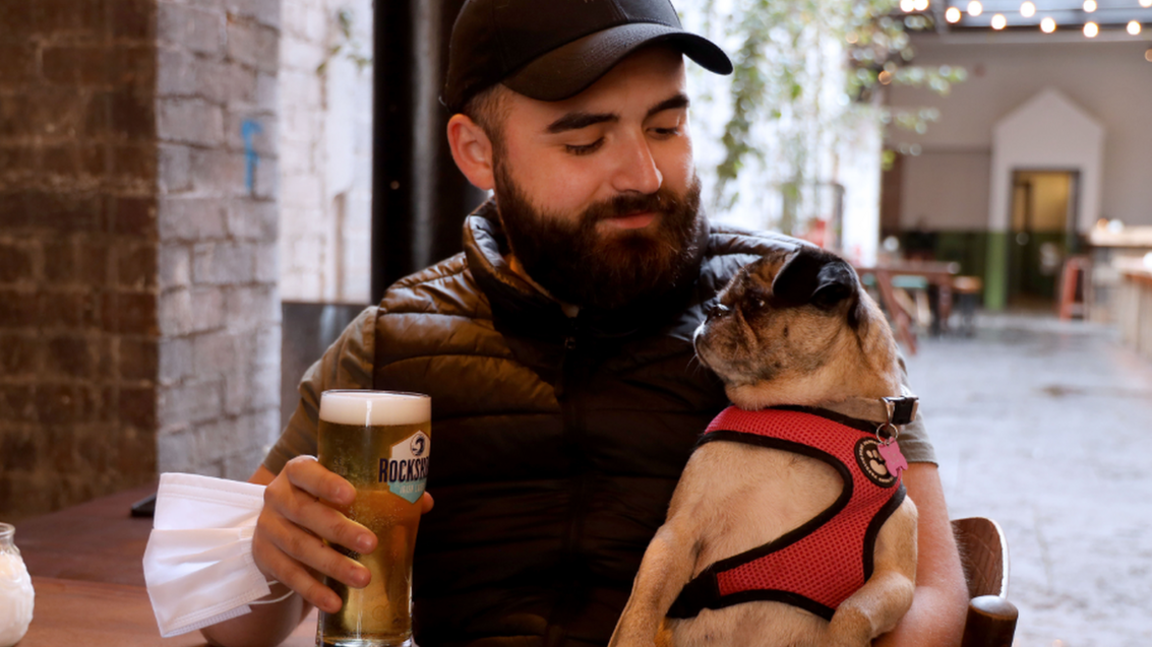Coronavirus: Why are Covid-19 cases spiking in NI's north west?
- Published
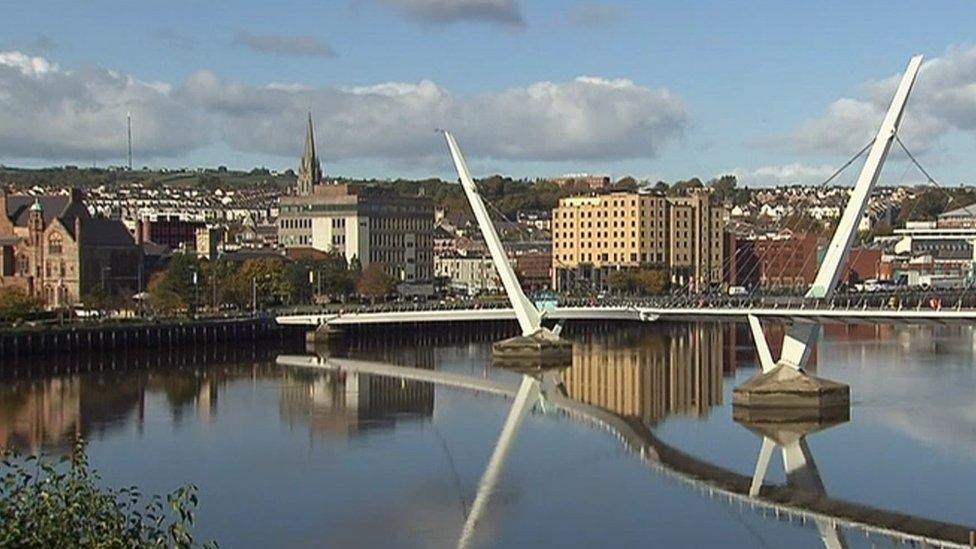
A third of all Covid-19 cases in Derry and Strabane have been recorded over the last seven days.
For more than six months Northern Ireland's north west had one of the country's lowest number of confirmed coronavirus cases.
But it's a region that now has NI's fastest-rising Covid-19 caseload.
Of the 546 confirmed cases in the Derry and Strabane District Council area, 184 have been recorded in the last seven days.
The area now has 122 positive cases per 100,000 inhabitants, according to Department of Health figures.
That's among the highest rates anywhere in the UK.
On Wednesday, Holy Cross College in Strabane closed after three positive cases were recorded in the "school community" since the weekend.
"We did amazingly well for months in terms of controlling the virus but it seems maybe some people have let things slip," Londonderry business owner Ciara Bradley told BBC News NI.
She said the recent surge is "concerning".
Local people have in the main been wearing masks where they have to, practising social distancing and sticking to the public health guidelines, she said.
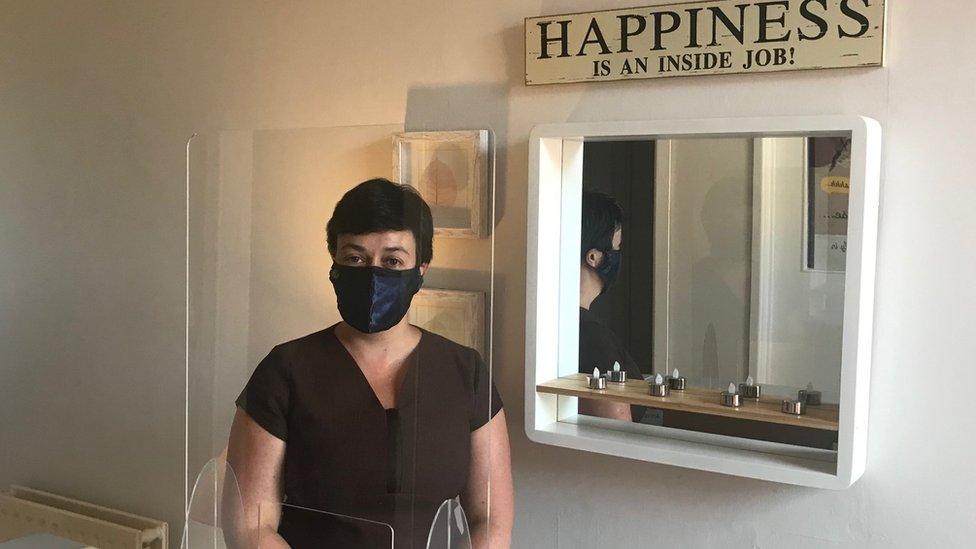
Business owner Ciara Bradley beleives many people have a sense of "lockdown fatigue".
But she thinks as restrictions eased, people's mindset changed too.
"I think some people got fed up, that there was a touch of fatigue after lockdown.
"We had to come out of lockdown, it was the right thing to do for people's mental health and the economy needs us to take a step forward.
"But I suppose there is an element of risk to everything"
By 1 September, when the number of cases in the north west began to spike, many of the restrictions on public life in Northern Ireland had eased.
Schools and colleges reopened to students, people returned to work, hotels and restaurants began to trade again.
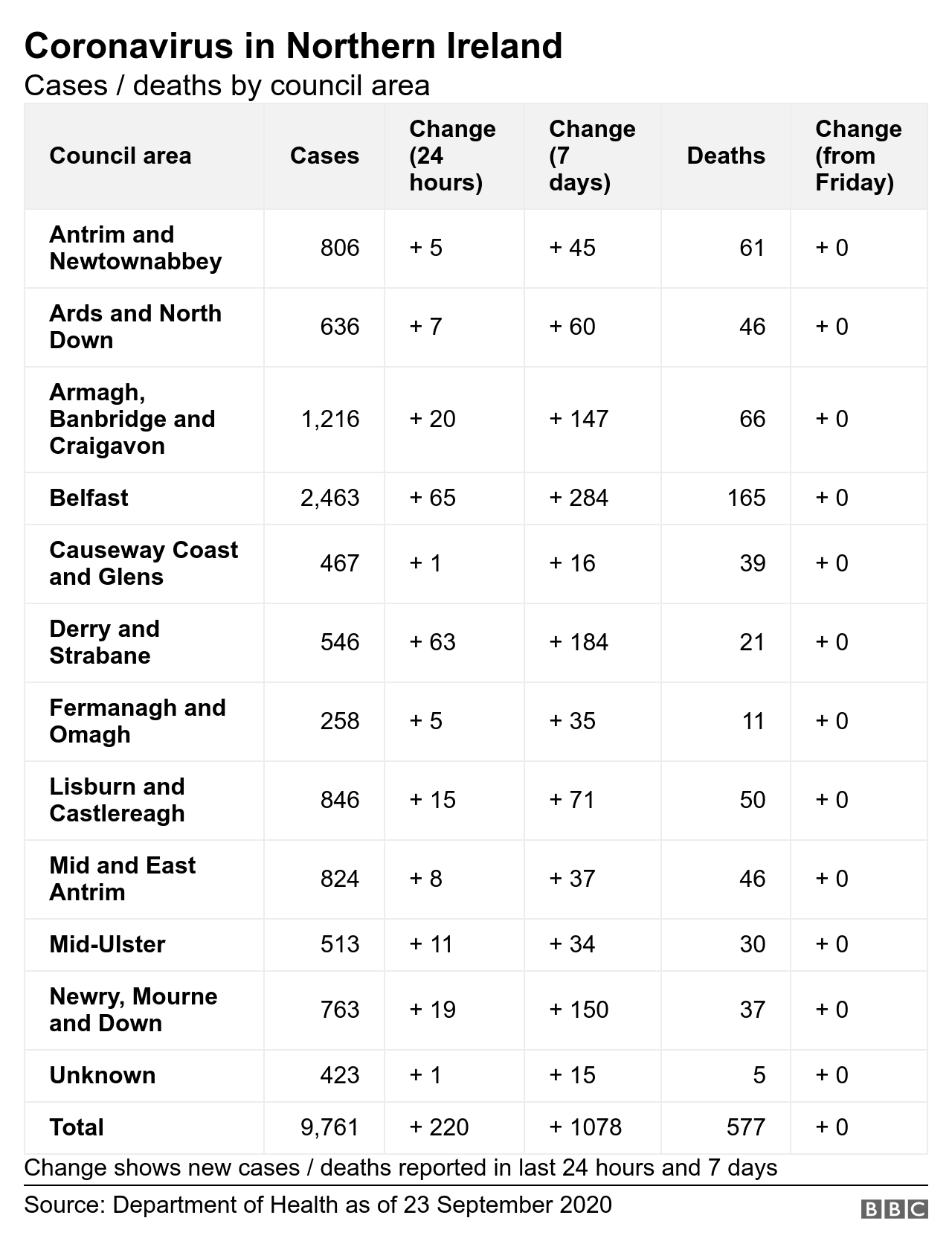
But earlier this month concerns over the rising number of cases saw localised restrictions introduced in a number of areas including Belfast and Ballymena.
On Tuesday, those restrictions to curb the virus' spread were extended across Northern Ireland.
The measures announced meant people could not visit others in their homes and no more than six people from two households would be allowed to gather in a private garden.
Ciara, a holistic therapist, said it is "probably the right thing to do".
She said "no matter how people view the pandemic" they have a responsibility to protect the wider community.
"I really feel for the elderly and the more vulnerable, people who were just getting back out, and back socialising, things that are so important for everyone's mental health. To be isolated again will be very challenging," she said.
'No simple explanation'
As a border region, thousands of people cross between Derry and Strabane and County Donegal in the Republic of Ireland daily.
Northern Ireland's chief scientific officer Professor Ian Young said work was ongoing with public health professionals in the Republic of Ireland to track a sharp rise in some border counties.
"I don't unfortunately have any simple explanation as to why the rise in Derry and Strabane and some of the other border counties has been so rapid," he told BBC Radio Foyle.
"It is notable that, in some cases, the border counties in the Republic of Ireland have also seen a rise, so it suggests something is happening in the geographical regions."
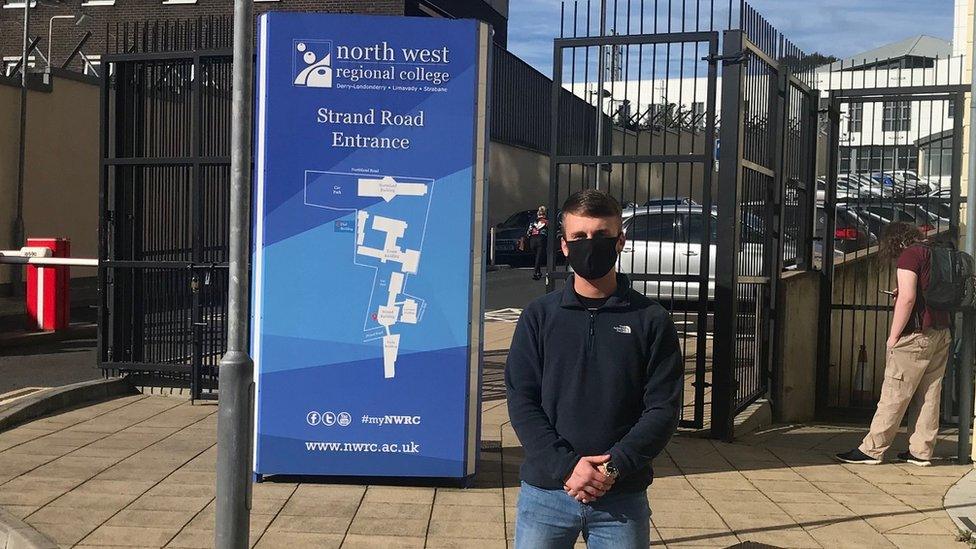
Student Nathan Edgar says peoplehave become confused by mixed public health messaging.
Most of the confirmed cases in the Derry City and Strabane Council area over the last seven days are among the under 40s.
Department of Health statistics show that age range accounts for 120 of the regions 184 cases since 16 September.
Nathan Edgar, a student at the North West Regional College, said people are confused by "contradictory" public health messages.
"I'm in a college with 800 other students. People are thinking that if we can go to college then everything is ok.
"One minute it is 'eat out to help out', we're told it is ok to go to a bar, then the next it's don't visit your family at home. It's led to a lot of confusion," he said.
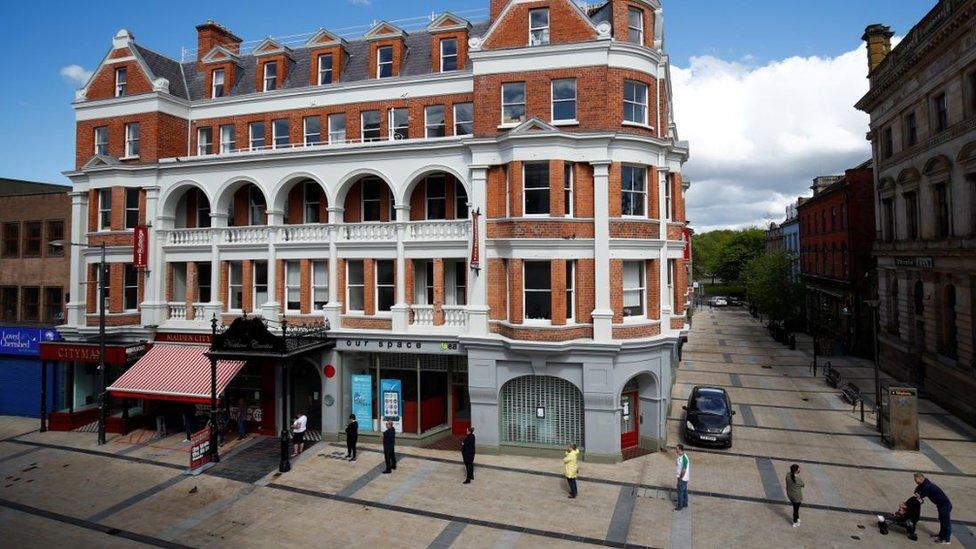
A queue demonstrating social distancing outside a butchers in Derry during lockdown.
It's a confusion he believes has led some people to switch off to the seriousness of the virus.
Many people, he added, are "scapegoating young people".
"It is not fair to point the finger. Everyone I know wears a mask, everyone sticks to the guidelines, because no matter what they think, they don't want to take any risks.
"It should be the same for all of us no matter what age you are. This is not going away, I'll do whatever I have to, to keep everyone safe."
'Crucial juncture'
Brian Tierney, Derry and Strabane District Council's Mayor, said after an "extremely challenging seven months" it is now as important as ever that people work together to combat the virus.
"In the large part, I have been proud of the efforts made by our community, and now we are at a crucial juncture where we must continue to do everything that we can to keep ourselves, our family, and our community safe and healthy," he said.
"So many have done such good work until this point and, while we have seen a rise in positive cases due to changes like schools re-opening, we as individuals have to take responsibility for our own actions and ensure that we are not contributing to the rise by making the wrong choices."
- Published23 September 2020
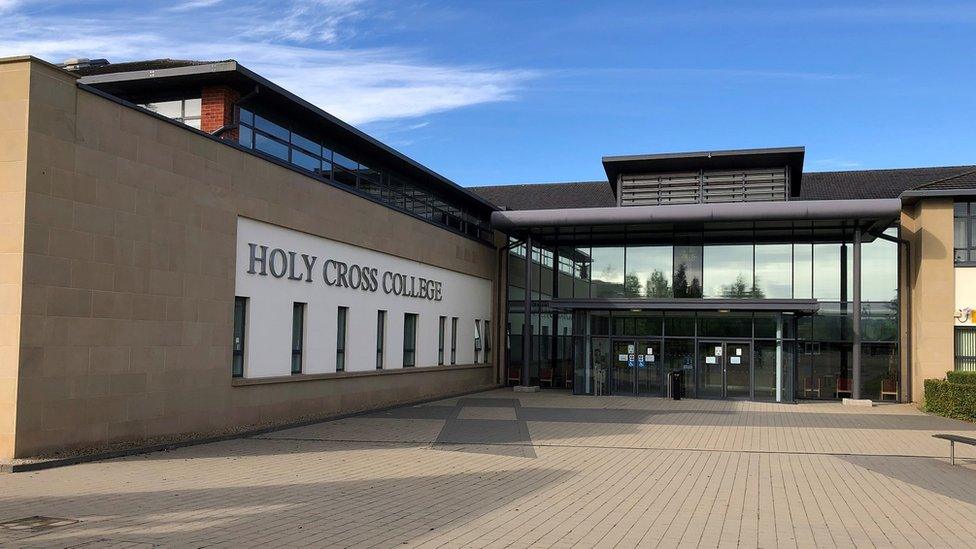
- Published23 September 2020
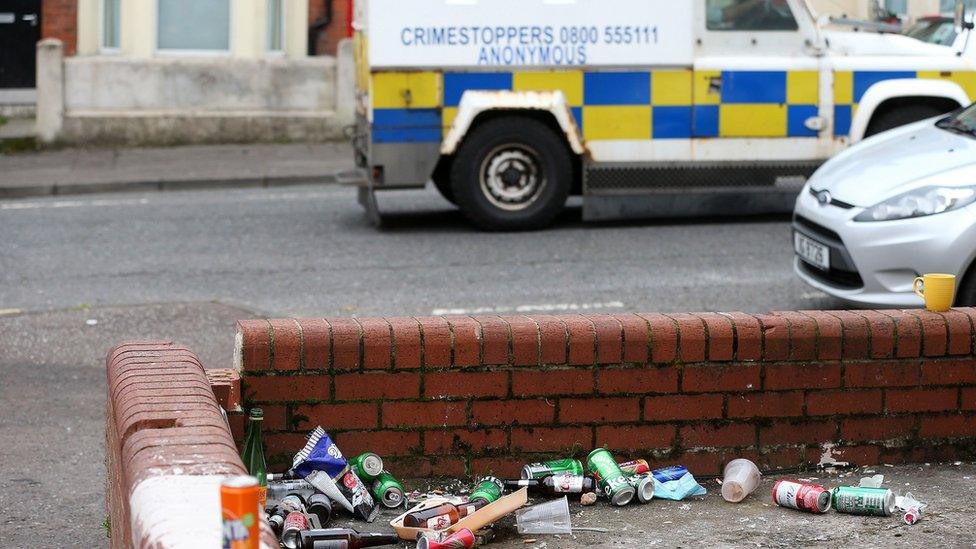
- Published23 September 2020
